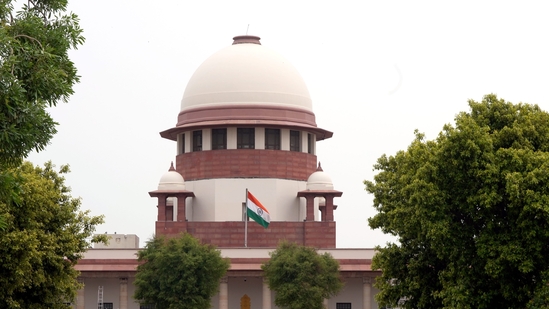In a major judicial development, the Supreme Court of India has suspended the Allahabad High Court’s contentious judgment that held that groping a woman’s breasts or snapping the string of her pyjama does not constitute an attempt to rape. The apex court issued its order following a writ filed by the women’s rights organization We the Women of India against the Allahabad High Court’s March 17 ruling.

The Supreme Court bench, presided over by Chief Justice of India DY Chandrachud, called the high court’s decision “insensitive” and a demonstration of ignorance about the trauma suffered by sexually assaulted victims. The bench asked for responses from both the Central Government and the Uttar Pradesh Government on the issue.
Background of the Case
The appeal is based on an incident wherein a 24-year-old was charged with sexually assaulting a woman at a private home. Allahabad High Court had held that though the acts of the accused were not becoming and amounted to an offense against the Indian Penal Code (IPC) for insulting the modesty of a woman, they failed to meet the legal definition of an attempt at rape. The court contended that an attempt at rape entails an evident intent to perform the act of sexual intercourse, which in this case was not proven.
But the ruling was met with widespread outrage across the nation. The judgment was condemned by women’s rights activists, lawyers, and politicians as undermining the seriousness of sexual assault cases and establishing a dangerous precedent. The petitioners contended that the interpretation of the law by the high court was flawed and inconsistent with earlier judgments involving sexual offenses.
Supreme Court’s Intervention
At the hearing, the Supreme Court highlighted that the high court’s definition of the law on sexual assault was narrow and insensitive to women’s actual lived experiences of sexual violence. Chief Justice Chandrachud stated that such acts are reduced to “outraging modesty,” which diminishes the seriousness of the offence and communicates the wrong message regarding the safeguard of women’s rights under law.
The bench also emphasized that the lack of penetration cannot rule out attempted rape, quoting established legal doctrines where conduct short of actual intercourse has been held to constitute an attempt to rape. The court noted that sexual violence is not limited to a narrow range of abusive acts.
Legal and Social Impact
Legal experts have appreciated the Supreme Court’s move to stay the Allahabad High Court order, terming it a move to maintain the dignity and security of women under Indian law. Women’s rights organizations have also appreciated the order, hoping that the intervention of the Supreme Court will result in more sensitive and holistic interpretations of sexual assault legislation.
The case will now be scrutinized further by the Supreme Court, which is likely to give a comprehensive verdict after listening to all the parties concerned. The decision in this case may have long-term implications for the interpretation and prosecution of sexual assault cases in India.
This intervention is indicative of the increasing awareness of the judiciary of the necessity to safeguard victims of sexual violence and make sure that legal definitions do not dilute the seriousness of such crimes.





